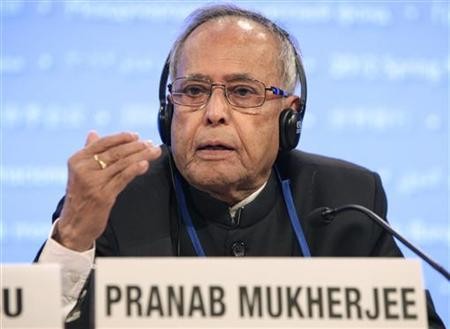
Finance minister Pranab Mukherjee presented the much-anticipated "white paper on black money" in a Parliament session on Monday.
Mukherjee's proposed move reflected an earlier promise made during his budget speech in the Lok Sabha where he said, "I will try to give all the relevant and possible information".
According to reports, the paper is expected to provide for mandatory disclosure of purchases made on jewellery and property, and even provide for a comprehensive strategy to be adopted by the government to help recover unaccounted funds back to Indian soil.
"The paper will focus on bullion, gold jewellery and the real estate sector. It suggests that there should be more transparency in land dealings, and registration of land should be regularized," an unnamed official close to the matter told the Indian Express.
However, the 97-page document did not include estimates of black money stashed abroad and within India, with expert committees yet to submit a report on unaccounted cash.
"In respect of estimates of black money, three institutions are studying it independently and they will give their reports at the end of an 18-month period, and that period is coming to a close around July or August," Mukherjee said while addressing the issue in the Lok Sabha earlier this month.
The document includes tax incentives, action against financial offences and several other policy strategies to help curb corruption in the country.
White paper also emphasized the role of the central government "to establish a regulator to empanel auditors in different grades and randomly assign them to the private sector firms, based on category and payment capacity, with mandatory rotation and maximum tenure of two years," the document said.
The document held "illegal and criminal activities" largely on account as source of illicit cash. Such money is invested through participatory notes in Indian stock market by those who wish to avoid Indian regulators. Such Illegal investments are also made through Global Depository Receipts, the document said.
The paper recommends that foreign entities operating in India should report all global transactions over a threshold limit. The definition of 'foreign entities' will include banks, FIIs, and fund transfer entities, among others.
A government committee headed by Central Board of Direct Taxes (CBDT) chairmanship, said that "all global transactions above a threshold limit" should be reported by foreign entities in the country.

















